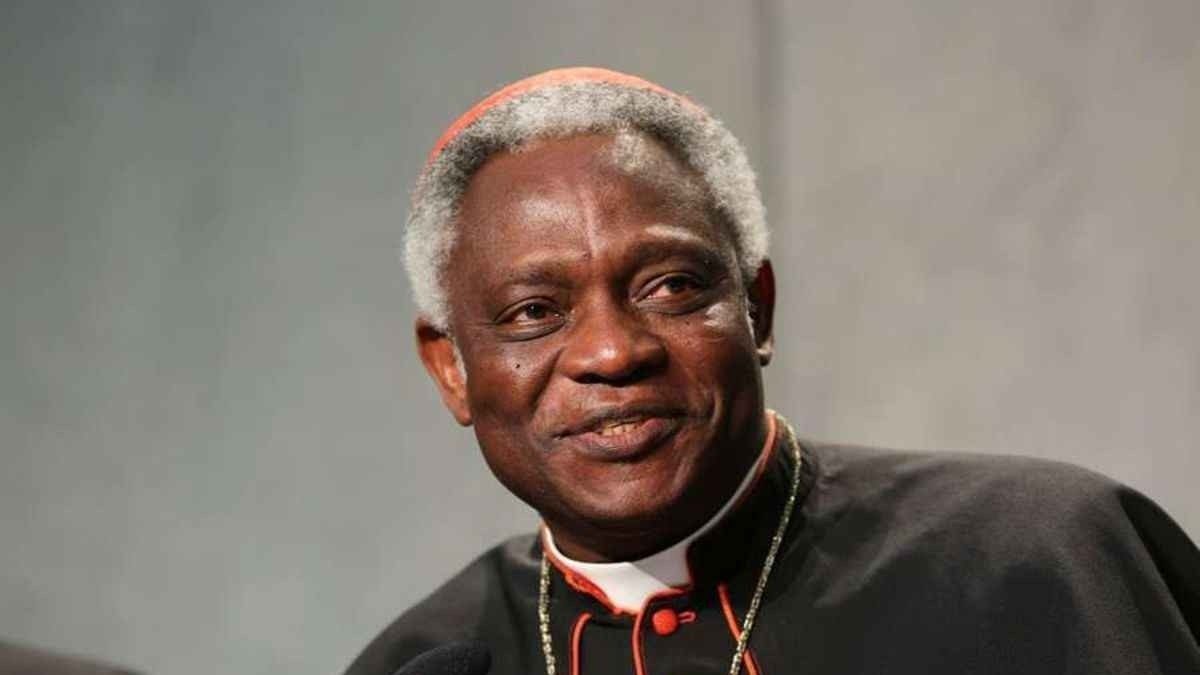
First published in “La Croix International” on March 8, 2021.
Pope Francis has offered us clear guidance on the choices facing us all during these unprecedented times.
We can emerge from the present crisis of this pandemic better or worse than we were before. We can choose to preserve the status quo, to build walls, to further entrench ourselves in our habits of greed and selfishness.
But, as Pope Benedict XVI taught us in Caritas in veritate, a crisis “obliges us to re-plan our journey, to set ourselves new rules and to discover new forms of commitment, to build on positive experiences and to reject negative ones.”
In this way, it becomes “an opportunity for discernment, in which to shape a new vision for the future.”
By God’s grace, we can discern and choose to assist in the creation of a better world, one that is invigorated by faith and renewed in our collective commitments to one another.
As we look toward life after the pandemic, we must consider how all the sicknesses that plague us — social, spiritual, physical — can only be healed by the love of Christ through faith.
Renewed structures
The Scriptures show the burning desire of Jesus to bind up the wounded, and to heal the broken and sick.
Healing is in service of something even greater than physical or mental health. Often it points to a total renewal of the person and the community.
In doing so Jesus teaches us two things; first, that in a fundamental way we are all in need of healing. And second, in acknowledging our “lostness” and need for God, grace can restore each one of us to our proper place of dignity.
Jesus not only heals physical ailments. He heals, yes, but he also creates renewed communities, where no one is excluded. He seeks out the poor and the suffering, those left behind by society, and makes possible new ways of living.
The example of the disciples in the Acts of the Apostles demonstrates just how transformativeGod’s grace can be when we follow him to the peripheries, where everything is shared, and noone suffers alone.
Following his example, we too must go out and bring healing to the world; not only from thepandemic that affects us physically, but also from the grave injustices that have oftenworsened and deepened during the pandemic, even despite our efforts.
Faith gives us the awareness of our connection with one another, particularly the poor and the marginalized. Faith stirs us to overcome all that diminishes in any way the dignity endowed in all God’s creation.
It is not enough to be for the poor in theory. No, this does not respect the dignity of the other!
Today, there exist many social structures that perpetuate injustice in our communities.Empowered by the limitless mercy of God, we must actively work to overcome these and the habits of personal and structural indifference that continue to exclude so many.
Evangelizing all sectors
We must be converted from our individualism, letting the poor evangelize us. Their experience of suffering shows us the way to the wounds of Jesus and the depths of his love.
One of the many painful lessons of this pandemic is how clearly we can see the tragic limits of our current broken economy, and a form of global capitalism in urgent need of healing. We must not tolerate an economic model that allows this.
Further, economic and technological inequality has created a rift in society and denied our world the harmony that is necessary for peace in our communities. To work for peace is to work toward a more inclusive capitalism, one which is ordered to integral human development and in which economic growth prioritizes those most in need.
The faithful should not only teach this message of a more fully evangelized global economy, inspired by the principles of love and mercy which are illustrated in the Church’s Social Teaching.
Rather, all Church entities, parishes, dioceses, seminaries, universities, schools, social serviceinstitutions of the faithful should find ways to practice financial stewardship in a way thatliberates and not enslaves.
For it is important that our stewardship of created goods, including all forms of financial activity, especially asset management, are directed to reflect God’s own gift to the human family, by serving the common good, respecting fairness and ethical standards.
When this happens, when people’s stewardship of created goods is aligned with God’s purposes for God’s creation, the outcome is real good, real gain and real impact.
One new model: Missio Invest
Missio Invest is an example of this stewardship of created goods, which promotes new forms of economic cooperation by reminding us that the economy should serve all of creation, and not just in the long-term, but here and now.
An impact investment fund launched by the Pontifical Mission Societies in the United States, Missio Invest reorients the existing tools of investment and global finance in a way that prioritizes sustainability, employment and care for our common home.
In the context of an economic paradigm which continues to deny others their dignity, Missio Invest has shown the way toward an inclusive capitalism, one that restores those on the margins, and heals the wounds of exclusion and injustice that impact us all. It offers a corrective to the exaggerated belief in financial markets on the sacredness of financial return on investments.
Without measuring investment performance against the horizon of total social impact, we risk falling short of the total returns available to investors, and the people and places over which they have influence.
As Pope Francis reminds us in Laudato si’, it would be a mistake to act as if “helping the poor financially must always be a provisional solution in the face of pressing needs”.
Life that is pushed to the margins will always be a pressing need!
Aid to the needy remains a prerequisite of faithful discipleship. But so often even aid itself is used as a means to deny others their agency, to dominate and possess the poor which only further poisons our society.
Lest the cycle of economic injustice and aid are repeated, reform of the global financial system is a pressing need during this time of pandemic. And the Church’s institutional structure must not consider itself immune from the sickness of economic injustice nor exempt from the work of financial reform.
Missio Invest makes an important contribution to this reform by practicing a form of capitalism that is founded on the dignity of the human person-in-creation, where solidarity is the guiding principle, and the benefits are returned to the many and not just the few.
Let us be competitive for the higher gifts, as St. Paul inspires us.
The Holy See has sought to light the way, raising awareness around impact investing and gathering leaders in business and finance.
As Pope Francis said to one such group, we need to bring about a world where “profit and solidarity are united in the virtuous existing circle between profit and gift”.
Peter Turkson, 72, is a biblical scholar and prefect of the Dicastery for Integral HumanDevelopment. He earlier served from 1993-2009 as Archbishop of Cape Coast in his nativeGhana. He was created cardinal by John Paul II in 2003.
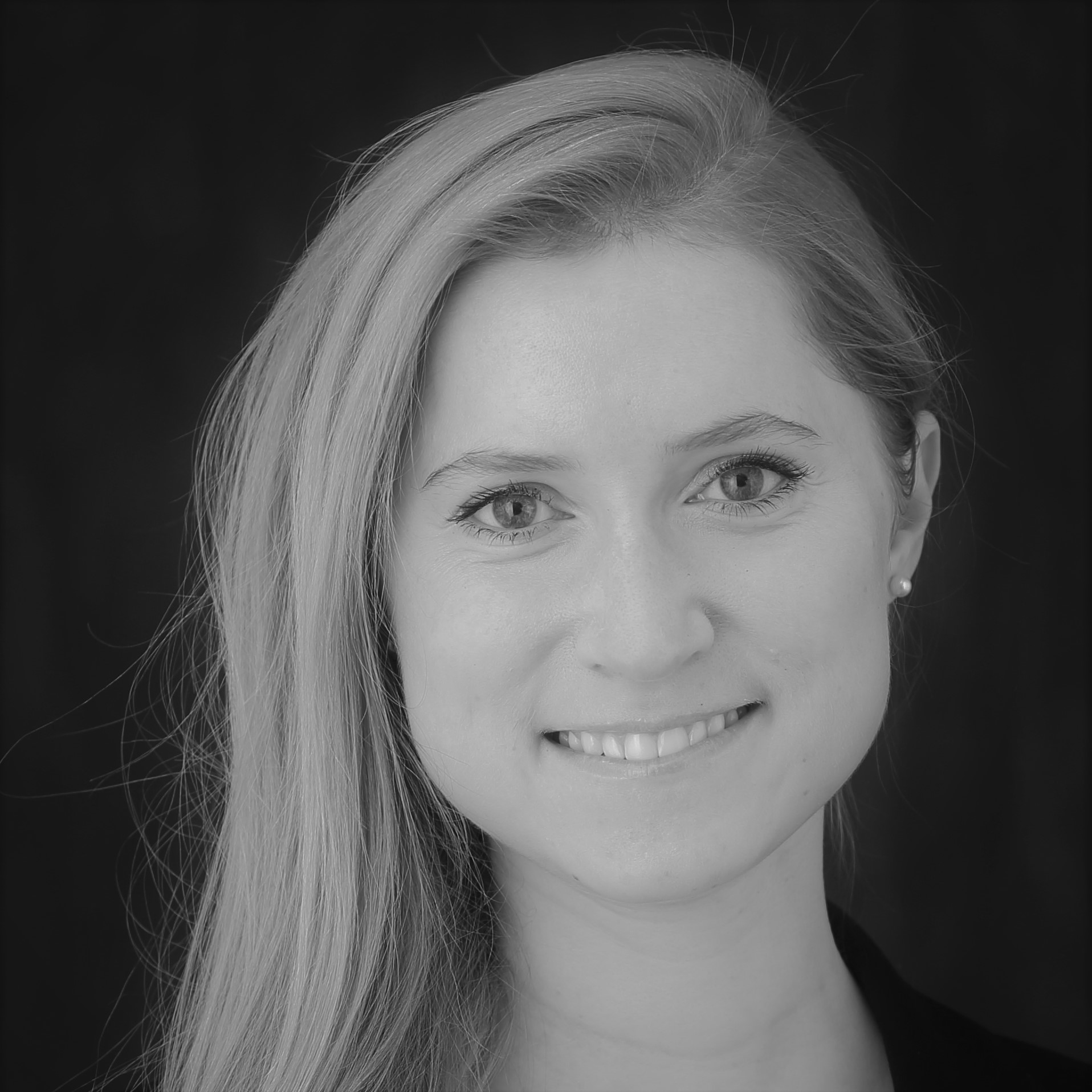
In conversation with the Institute for Pastoral Studies at Loyola University, Chicago, Joelle Birge talks about the work of Missio Invest and what inspires her every day to bring about the vision of the Church’s first social impact fund.
This article appeared in The Register, the newspaper of the Catholic Diocese of Salina, Kansas (September 25, 2020).
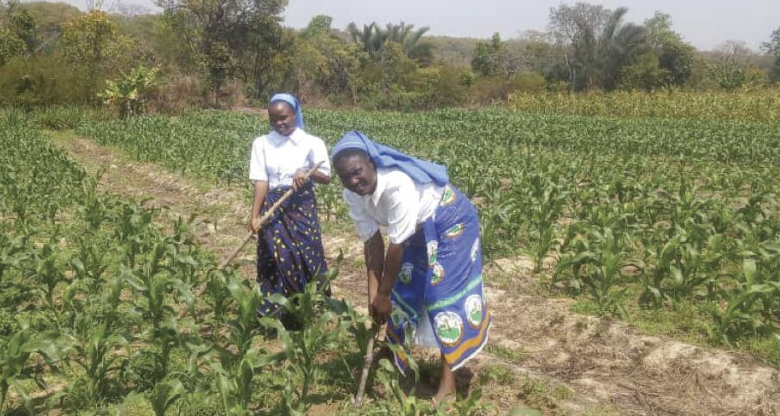
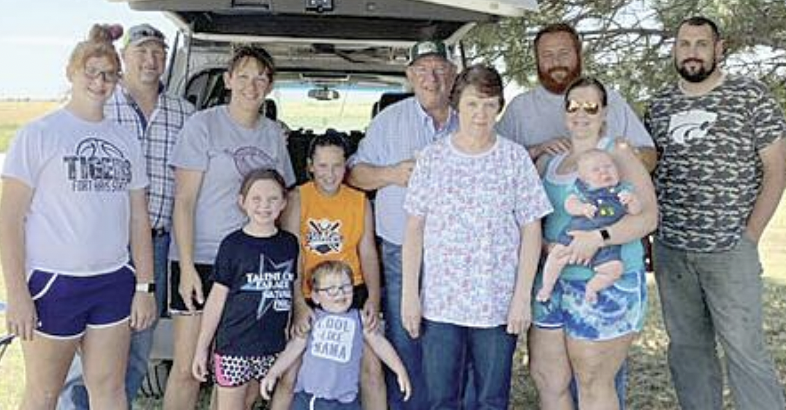

While the COVID crisis has affected all businesses, the high impact “nuntrepreneurs” in Missio Invest’s portfolio seem to have found a window of hope. The Missio Invest Social Impact Fund (MISIF) currently has 36 agribusinesses in the portfolio, 13 of which are owned by Sisters, and none of these small enterprises have considered shuttering operations. For many, in fact, business is booming. Half of all current borrowers have experienced minimal disruption and elected to maintain their original loan repayment schedules. Among the nuntrepreneurs, less than a third have taken Missio Invest’s offer for a COVID-19 payment moratorium, and a quarter have even made pre-payments on their loans.
Missio Invest has found that this long-term give-and-take with community stakeholders is essential to the resilience of Church-run businesses. Investees operate various social programs in their locality — healthcare, education, women’s counseling, and youth development, for example — and as such are an integral part of the communities they serve. Although each case is unique, five particular characteristics help insulate investees from unanticipated adverse events:
Across the globe, COVID-19 has wreaked havoc on global supply chains, disrupted access to markets, and severely threatened–or shuttered–many small businesses. The effects have been particularly devastating in emerging markets, where government assistance is less readily available and nationwide lockdowns are more restrictive due fragile health systems. In May, in a survey of small and growing businesses in emerging markets, the Aspen Network of Development Entrepreneurs (ANDE) found that 47% of businesses surveyed had already temporarily shut down operations and another 25% anticipated doing so. Women-owned businesses were among the hardest hit.
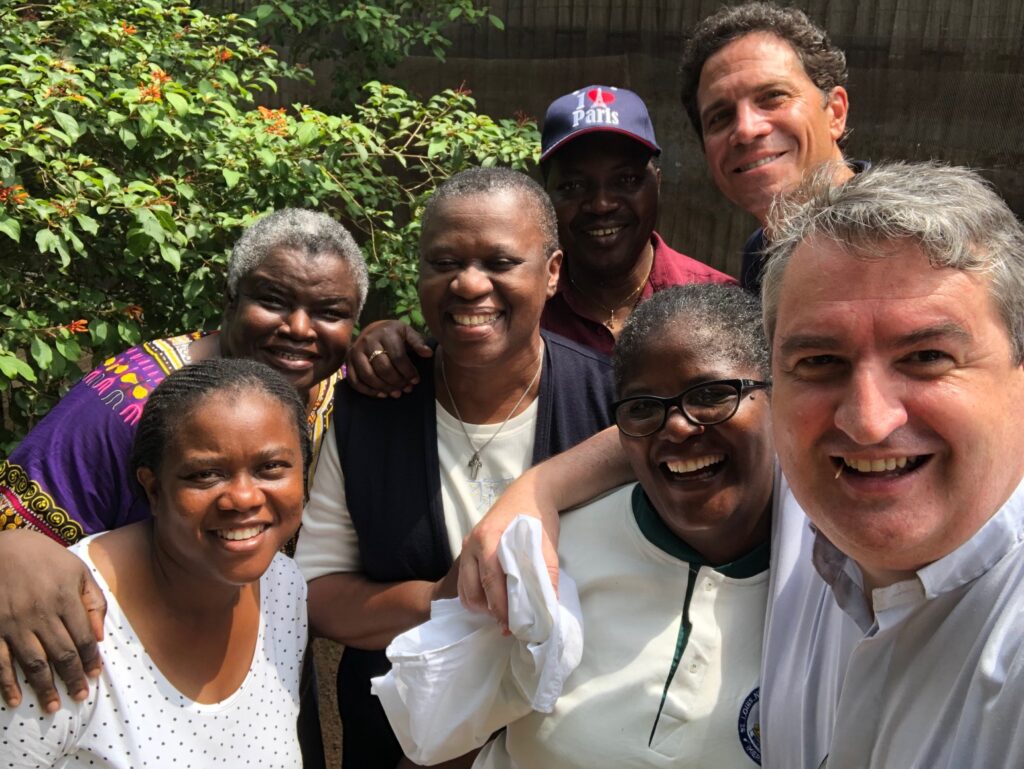
Copyright, Missio Invest
One such women-owned success story is the Sisters of Saint Louis Bautain Farm (SSLBF) in Ewulu, Delta State, Nigeria. Missio Invest issued the Sisters of St. Louis a $70,000 loan in December 2019 to fund expansion of their existing poultry, pork and cassava processing enterprises. In the ensuing months, the Sisters have proven their ability to weather a global crisis.
In late March 2020, the Nigerian government imposed COVID-19 lockdown measures restricting interstate movement of goods and limiting food importation. These regulations disrupted supply chains for foods such as fish, which could no longer be transported from seaports to inland states. To make the situation worse, Delta State was one of a number of state governments that imposed restrictions on local fishing activities and reduced hours for local markets. The result was a drop in supply so that fish, a staple food for many Nigerians, became prohibitively expensive for the large low-income population.
Sister Catherine Adelegan, director of Louis Bautain Farm, had an idea for a solution. Louis-Bautain Farm is a multi-enterprise agribusiness, operating a poultry unit with over 1,000 chickens, a five-acre cassava plantation and processing unit, and a piggery with over 500 pigs. Having sourced a sufficient supply of pig and chicken meal locally before the pandemic, Sister Catherine slaughtered and sold her pigs ahead of schedule, saving the most vulnerable members of her community from hunger. The result was a win-win-win: community members had access to affordable protein, Louis Bautain Farm had income to support the congregation’s five health facilities, and Sister Catherine had enough surplus income to pay interest on her Missio Invest loan ahead of schedule. Wisely anticipating the potential for future currency fluctuations, she even chose to pay more than the amount due, resulting in a pre-payment of principal.
The Sisters have developed close ties with the surrounding community. Recently, when they visited the local Obi (ruler) of Ewulu Land and his Council to tell them they had food staples to distribute to the neediest, the Obi expressed his gratitude for the Sisters’ long history of assisting his people and vowed that he would continue to support them and to ensure their safety.
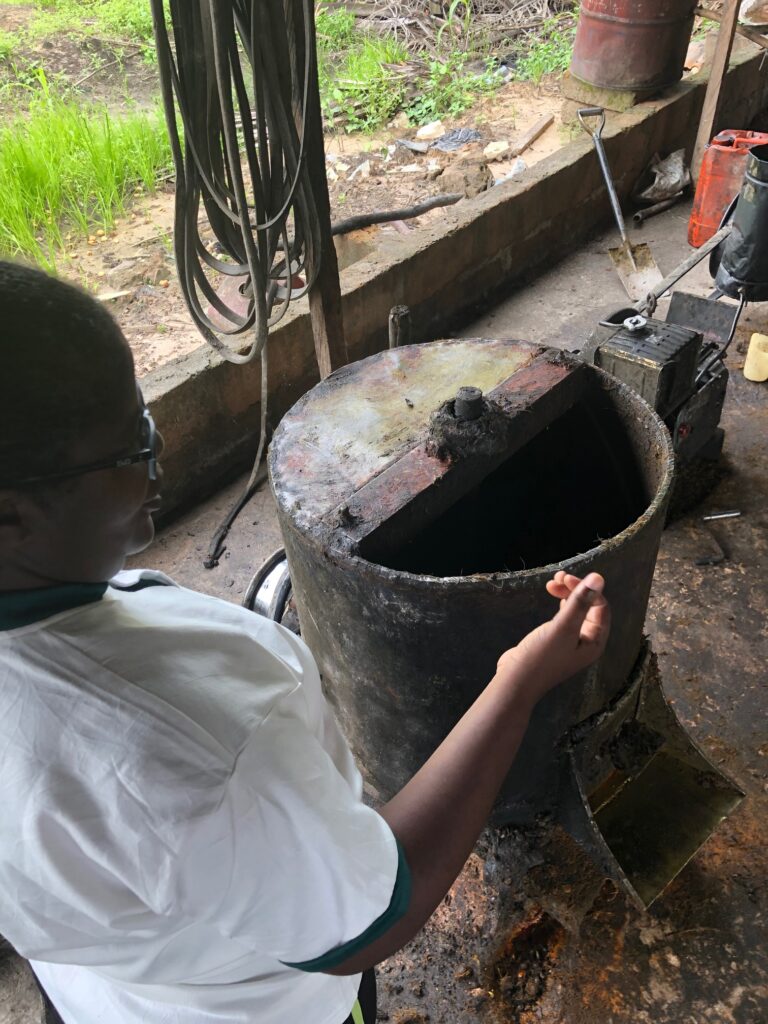
Copyright, Missio Invest
- Integration with local communities, which serve as customer bases and sources of labor in any economic cycle.
- Presence of resilient markets for produce through the global network of Church-operated schools, health facilities, and other social institutions.
- Diversification across several revenue-generating enterprises, which creates a cushion in the event of market disruptions to any one sector.
- Hyper-local solutions, which ensure that Missio Invest’s borrowers are not dependent on export markets and supply chains.
- Experience in managing business operations with limited resources during times of crisis. Many congregations were formed in poverty-stricken rural areas with the explicit purpose of finding ways to provide healthcare and education services where none existed, and they have retained their expertise in operating through difficult circumstances.
These factors have enabled many of Missio Invest’s portfolio agribusinesses to weather the COVID-1 9 storm. Investees like Sister Catherine and her farm in Nigeria provide living proof that, even in times of crisis, it is possible to do a lot of good with very little.
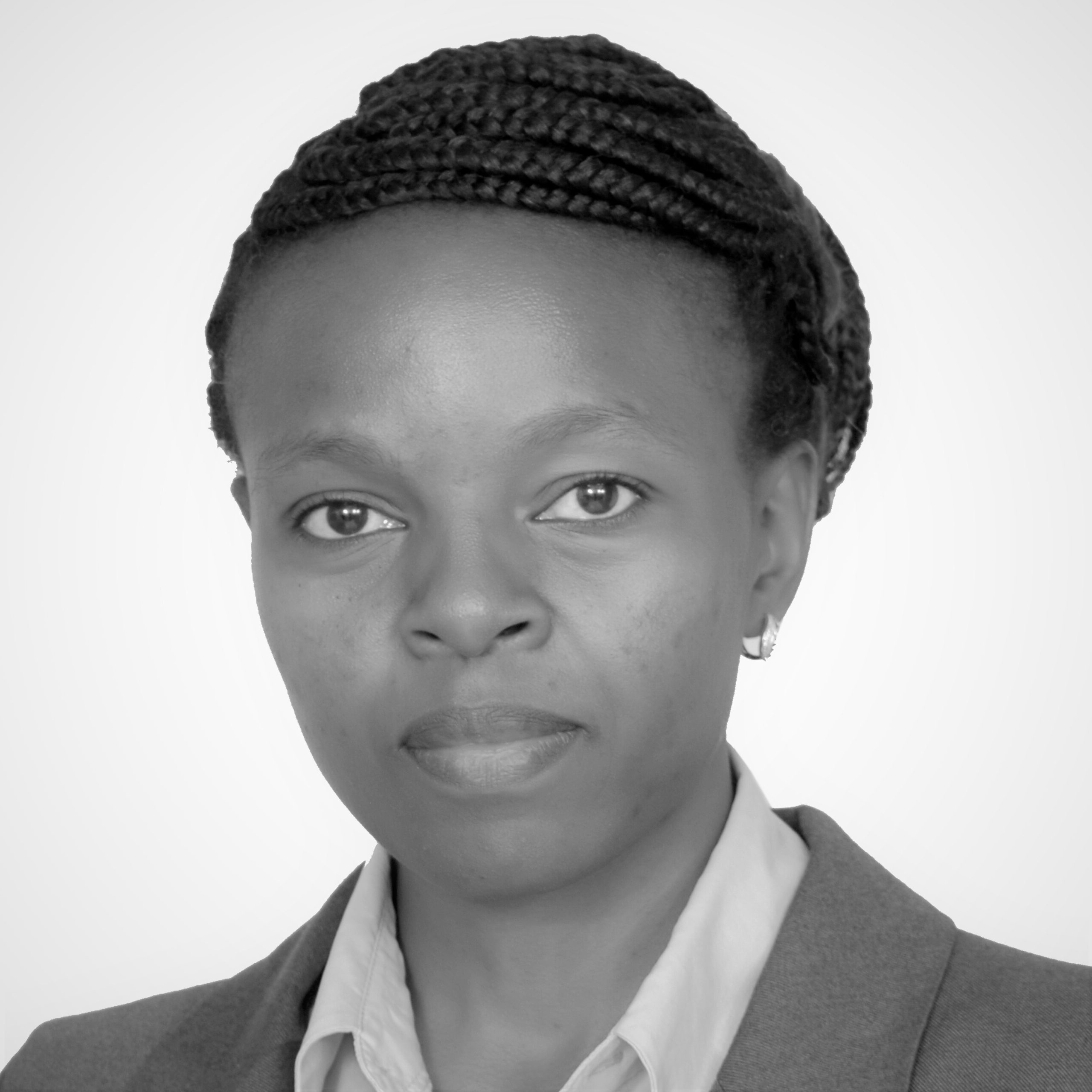
In September 2004, five Catholic Sisters gathered in St. Louis, MO with a mission to create an exhibition demonstrating how nuns had helped shape the history and culture of the United States. The show that resulted, “Women and Spirit: Catholic Sisters in America,” toured the U.S. between 2009 and 2012, with stops that included the Smithsonian, Notre Dame and Saint Mary’s College, and the Ellis Island Immigration Museum. It bore witness not just to the many acts of heroism carried out by Sisters over a nearly 300-year time-span, but also to the common Spirit that drove these women to live remarkable lives, often by creating oases of service to meet a pressing need at a given time in the nation’s history.
The exhibition was a tribute to pioneering women who helped build America’s health care, education and social services at a time when women didn’t have the right to vote. They raised funds to build schools, hospitals, orphanages and colleges before most women in the U.S. could legally own property, negotiate contracts, or acquire loans. They entered the workforce decades earlier than most women — during the Civil War, for example, when more than 600 Sisters served as nurses. During the Civil Rights Movement of the 1960s, nuns joined Martin Luther King in the voting rights marches in Selma, AL.
Standouts included Mother Alfred Moses, who helped develop the Mayo Clinic in response to a horrific tornado in Rochester, MN in 1883; Katherine Drexel, who founded Xavier University in 1915, then the only Catholic school for African Americans; and Carolyn Farrell, a Sister who in 1980 became the mayor of Dubuque, IA. However, such pioneers are not only to be found in history books and exhibitions. The same Spirit that inspired Mother Alfred and Katherine Drexel is alive and well among many religious Sisters in Africa today. Over the years, they too have raised funds to build hospitals, health clinics, schools, and children’s homes.
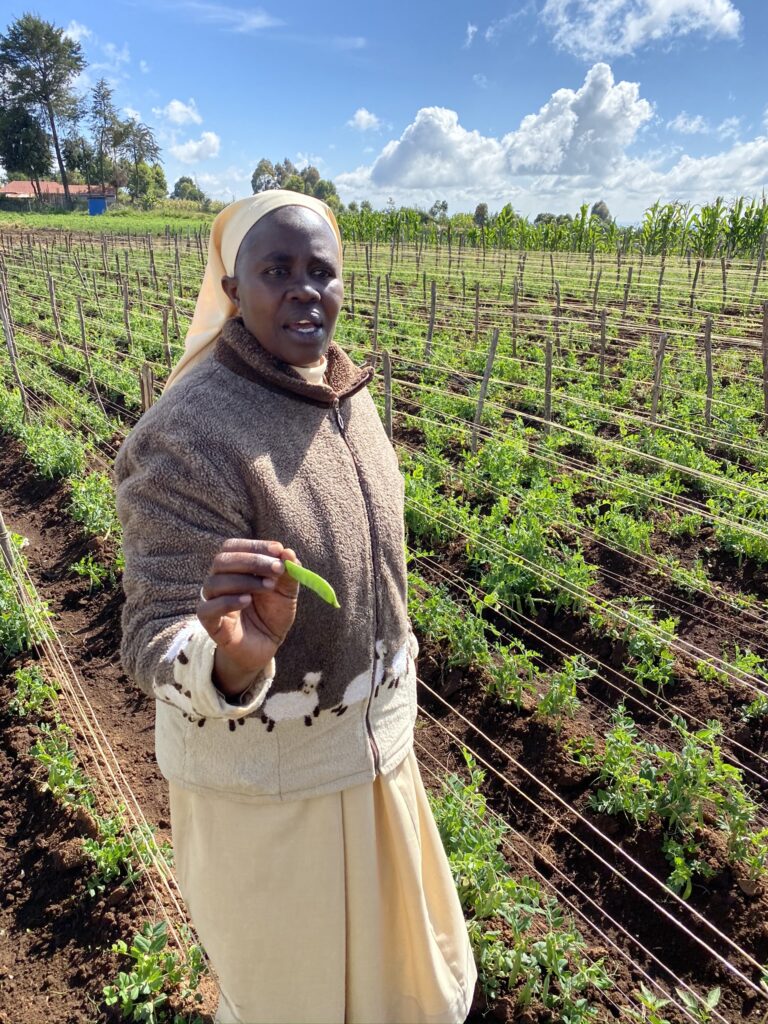
January, 2020
Take, for example, Sister Veronica Kiarie, a Little Sister of St Francis of Assisi known by her fellow Sisters as “Green Thumb.” She runs a medium-sized farm in the town of Molo, in Kenya, a venture that sprang from her passion to support the congregation’s social ministries, as well as to provide employment and drinking water to the neighboring community.
Sister Veronica’s congregation is an indigenous institute of Diocesan right. It was founded in May 1923 in Uganda by the late Mother Mary Kevin Kearney, a Franciscan Missionary for Africa, based on the charism of St. Francis: “To bring newness and fullness of Christ’s life in the world today by reaching out with compassion to the marginalized.” With more than 775 professed members, the Sisters operate hospitals, schools, health facilities, orphanages and homes for the elderly. Their missionary work is growing within the three East African countries of Kenya, Uganda, and Tanzania as well as in the United States.
Sister Veronica developed a business plan for her pea farm after attending a six-month agribusiness training program, and took out a $100,000 loan from Missio Invest in 2019. The farm grows garden peas for export, and rotates potato and cabbage crops for local consumption. Some of the farm produce is used to supplement the diets of the residents of the congregation’s home for the elderly, while the profits of the farm are used to support the running of the congregation’s social ministries. The farm directly supports a school with 946 students, a health facility serving nearly 12,000 patients a year, and a home for the elderly. Sister Veronica has a goal of generating more revenue from her farm to sustain and grow the congregation’s social work.
Like Mother Alfred before her, Sister Veronica provides innovative solutions to problems facing the community she was called to serve. She installed a solar-powered borehole on her farm after observing how the villagers were struggling to access clean drinking water. She also installed a five-acre drip irrigation system for year-round farm production and water conservation. She uses her teaching skills to train local smallholder farmers in sustainable agricultural practices. To boost the soil fertility, she tests her soil to ascertain the mineral deficiencies, uses organic manure, and has planted 2,700 trees for conservation. The farm supports 50 workers.
Sister Veronica creates time to mentor women on how to handle social economic challenges, and men on how to overcome alcohol addiction which is common in the locality. She also teaches Catechism in a nearby Parish.
Over the last 50 years, the number of Sisters in congregations in the United States has clearly dwindled. But in each case, such reduction has little to do with the entrepreneurial vigor of the Sisters or their communities. The African Church entities we work with are on a similar growth trajectory to the one that inspired German immigrant Sisters in Rochester MN to convince Dr. William Mayo and his sons to start a hospital for the local community in 1889. The spirit of those religious women is alive and well in Africa.